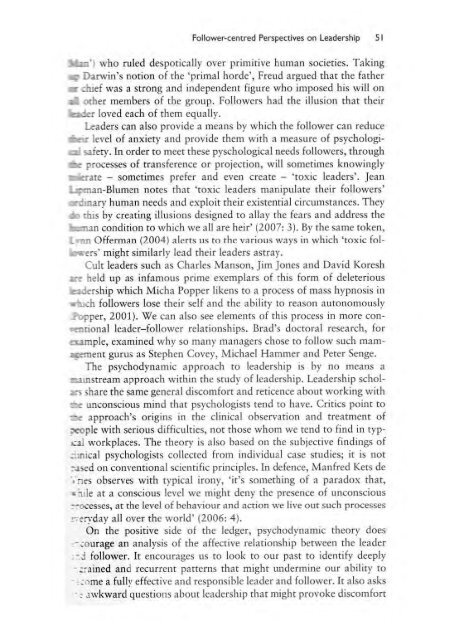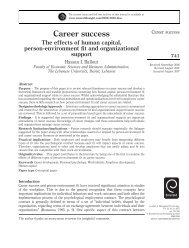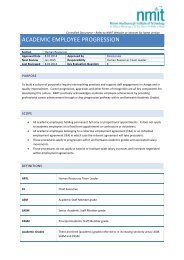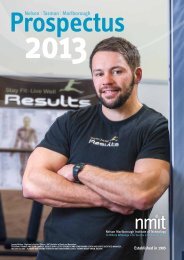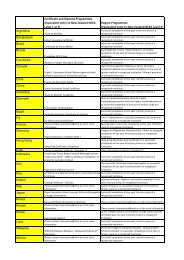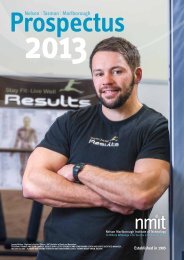Jackson Parry - Leadership, Chp 3, 41-60.pdf
Jackson Parry - Leadership, Chp 3, 41-60.pdf
Jackson Parry - Leadership, Chp 3, 41-60.pdf
- No tags were found...
Create successful ePaper yourself
Turn your PDF publications into a flip-book with our unique Google optimized e-Paper software.
Follower-centred Perspectives on <strong>Leadership</strong>5 I~} who ruled despotically over primitive human societies. Taking.. Darwin's notion of the 'primal horde', Freud argued that the father_ chief was a strong and independent figure who imposed his wil! on• cxber members of the group. Followers had the ill usion that theirD!er loved each of them equally.Leaders can also provide a means by which the follower can reduce"*" level of anxiety and provide them with a measure of psychologisafety.In order to meet these pyschological needs followers, through* processes of transfe rence or projection, will sometimes knowingly.-...rate ~ sometimes prefer and evell create - 'toxic leaders'. JeanJ..t:man-Blu men notes that 'toxic leaders manipulate their foll owers'..cma ry human needs and exploit their existential circumstances. They_ this by creating illusions designed to allay the fears and address thean condition to which we all are heir' (2007: 3) . By the same token,L~ Offerman (2004) alerrs us to the v;1riOIlS ways in which 'toxic fol __ ~ rs ' might similarly lead their leaders astray.Cult leaders such as Charles Manson, Jim Jones and David KoreshJIR held up as i_nfamous prime exemplars of this form of deleteriousbdership which Micha Popper likens to a process of mass hypnosis inwtuch followers lose their self and the ability to reason autonomously4Popper, 2001). We ca n also see elements of this process in more conw:nrionalleader~fo\l owc r relationships. Brad's doctoral research, forcurnple, examined why so many managers chose to follow such mam~ en t gurus as Stephen Covey, Michael Hammer and Petcr Senge.The psychodynamic approach to Icadershi p is by no means a~ S tream approach within the study of leadership. <strong>Leadership</strong> schol.ars share the same genera l discomfort and reticence about working with!be unconscious mind that psychologists tend to have. Critics point to6e approach's origins in the clinical observation and treatment of~ ple with serious difficulties, not those whom we tend to find in typ...::a1 workplaces. The theory is also based on the subjective findings of.:hnical psychologists collected from individual case studics; it is not:-..sed on conventional scientific principles. In defence, Manfred Kets de'; nes observes with typical irooy, 'it's something of a paradox that,...---TIde at a conscious Icvel we might deny the presence of unconscious~ocesses , at the level of behaviour and action \-ve live out such processes,",,,yday a ll over rhe world' (2006, 4).On the positive side of the ledger, psychodynamic theory does:- ":ourage an analysis of the affective relationship between the leader~ -.J fo llower. It encourages us to look to our past to identify deeply- i:~ai n ed and recurrent patterns that might undermine ou r ability to": .:ome a fu lly effective and responsible leader and follower. It also asks-: Jwkward questions about leadership that might provoke discomfort


